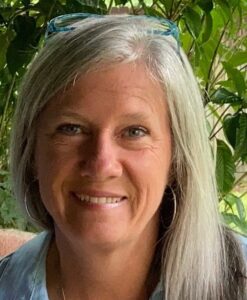By Dr. Teena Welborn
“Anyone who welcomes a little child like this on my behalf is welcoming me.” – Matthew 18:5.
Bringing non-biological children into your home, whether you are planning on adoption, foster care, or something else, should be preceded by much consideration and prayer.
My personal experience was incredible! My parents raised my two cousins after their mother passed away from non-Hodgkin’s Lymphoma. My brother and I went from having our own bedroom to sharing it with a boy and a girl we weren’t very acquainted with at the time.
It was important for my parents to involve us in the process. I was 9 and my brother was 7. I remember my parents gathering us for the discussion and asking what we thought. I was excited to get a new little sister! She was 5, and our new brother was 18 months. My young mind did not understand what would be changing or what I would be giving up.
Once we discussed the changes that would occur, how our cousins were to be treated, and our parents’ expectations, the adventure began. The last thing I remember was that we were never to say they were not our brother and sister. My father explained that he and our mother never wanted our new siblings to feel they didn’t belong. Our family would be their forever home … no exceptions. Once we entered the agreement, there was no back and forth. I can’t say it was always perfect, but neither is a biological family. When I look back, I would not have changed a thing!
“Behold, children are a heritage from the Lord.” – Psalm 127:3a.
The organization Adoption UK reported in 2021, “Adopting a child when you already have biological children can be a rewarding experience, but it also requires careful consideration of family dynamics and emotional impacts.” They listed the following as important factors to consider:
- Emotional considerations.
- Age gaps. Many agencies recommend the adopted children be younger.
- Involve all children in setting up space and buying gifts for adopted children.
- Give plenty of opportunities for biological and adopted children to bond.
- Set boundaries. It is important for biological children to have private time and space to adjust.
- Find support groups or other like-minded families to discuss changes or challenges.
It is my experience in the classroom that adopted children can thrive successfully in their new home. I have also seen biological children flourish and be protective of their new sibling if that biological child had a smooth and loving transition into their new shared life.
It is my prayer that anyone considering adoption prays about it and makes sure it is a God-guided adventure for you and your family. There are approximately 113,000 children in the United States wanting a forever home, so if it is something you have considered, research giving them a loving Christian home.
“In you the orphan finds mercy.” – Hosea 14:3.

Dr. Teena Welborn is a retired educator and author of “Raising Whosoevers to Be the Heart of Our Schools.” Dr. Welborn and her husband of 37 years, Cliff, live in Florence, Mississippi, where they raised their three boys. They are members of First Baptist Florence. She can be contacted at tlmwelborn13@gmail.com.

Teena’s adopted siblings, Judy (who passed away in 2022) and Richard.

Teena’s adopted siblings, Judy (who passed away in 2022) and Richard.